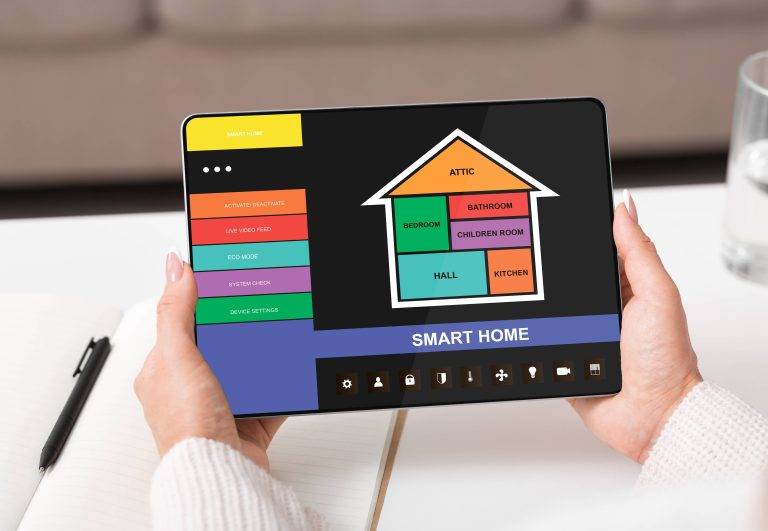
In today’s digital age, managing household energy consumption efficiently has never been more accessible, thanks to advancements in smart home technology. Not only do these innovative solutions contribute to environmental sustainability, but they also significantly cut down your energy bill. Let’s explore practical ways to leverage smart home technology to make your home more energy-efficient and ultimately, save money.
1. Smart Thermostats
The use of smart thermostats has revolutionized home temperature management. These devices learn your preferences over time, adjusting the heating and cooling in your home accordingly. With their Wi-Fi capabilities, you can control them remotely via smartphone apps.
Benefits:
– Adaptive Learning: They predict your habits and adjust temperatures when needed, ensuring your HVAC system isn’t working overtime when it’s not required.
– Remote Access: Control your home’s temperature even when you’re not there, optimizing energy use.
– Geo-fencing: Some smart thermostats adjust the temperature based on your location, ensuring that your home is comfortable when you arrive and energy-efficient when you leave.
Popular Options:
– Nest Learning Thermostat
– ecobee SmartThermostat
2. Smart Lighting
Lighting represents a substantial portion of energy consumption in most households. Smart lighting systems, which include LED bulbs controlled through apps or voice assistants, can greatly reduce this load.
Benefits:
– Scheduling: Set your lights to switch on/off at specific times, reducing unnecessary energy consumption.
– Motion Detection: Lights turn off automatically when no motion is detected, ensuring that lights are only in use when necessary.
– Dimming Capabilities: Lowering brightness levels can save energy and prolong the life of your bulbs.
Popular Options:
– Philips Hue
– LIFX Smart Bulbs
3. Smart Plugs and Power Strips
Smart plugs and power strips transform regular appliances into energy-saving devices by giving you the capability to turn them on and off remotely.
Benefits:
– Energy Monitoring: Track real-time energy consumption, helping you identify and reduce vampire loads – the energy used by devices in standby mode.
– Remote Control: Turn off devices remotely, ensuring that no device is consuming power unnecessarily.
– Automation: Schedule appliances to turn off when not in use, ensuring efficient energy use.
Popular Options:
– TP-Link Kasa Smart Plug
– Belkin WeMo Insight Smart Plug
4. Smart Appliances
Modern appliances come with enhanced energy efficiency features and smart capabilities, allowing you to operate them more effectively.
Benefits:
– Energy Star Rating: New smart appliances are often more efficient and come with an Energy Star rating, ensuring lower energy consumption.
– Remote Management: Control your appliances via a smartphone app, allowing you to start cycles (e.g., a dishwasher or washing machine) during off-peak energy hours.
– Maintenance Alerts: Receive notifications about necessary maintenance to keep your appliances running efficiently.
5. Smart Blinds and Shades
Regulating heat gain and loss through windows is crucial for maintaining a comfortable indoor environment without overloading HVAC systems. Smart blinds and shades automate this process.
Benefits:
– Automated Adjustment: Schedule blinds to open during cooler parts of the day in summer or let in warm sunlight during winter days, reducing the burden on heating and cooling systems.
– Remote Operation: Control blinds and shades using your smartphone, optimizing energy usage throughout the day.
Popular Options:
– Lutron Serena Shades
– Somfy Smart Blinds
6. Smart Water Heaters
Water heating is another key area where energy can be saved through smart technology. Smart water heaters offer precise control and more efficient operation.
Benefits:
– Scheduled Heating: Heat water only when needed, reducing waste.
– Leak Detection: Receive alerts when there’s a leak, preventing water – and energy – wastage.
– Usage Monitoring: Track your energy consumption and adjust accordingly.
7. Home Energy Monitoring Systems
These systems provide a comprehensive view of your energy consumption patterns, giving you insights into where and how you can save energy.
Benefits:
– Detailed Analytics: View detailed reports on energy use, which can help you identify and rectify inefficiencies.
– Appliance-Level Monitoring: Some systems track individual appliances, making it easier to pinpoint energy-hungry devices.
– Optimized Usage: Use the insights to optimize the use of your appliances and systems based on peak and off-peak hours.
Popular Options:
– Sense Energy Monitor
– Emporia Vue Energy Monitor
8. Smart Irrigation Systems
For those with a garden, smart irrigation systems can save considerable amounts of water and energy.
Benefits:
– Weather-Based Adjustments: These systems adjust watering schedules based on the local weather forecast, ensuring that you’re not wasting water.
– Soil Moisture Sensors: Water only when the soil is dry, preventing over-watering.
– Scheduled Irrigation: Use timers to water plants during cooler parts of the day, reducing the energy needed to pump water.
Popular Options:
– Rachio Smart Sprinkler Controller
– RainMachine Smart Wi-Fi Irrigation Controller
Conclusion
By integrating these smart home technologies, not only will you create a more comfortable and convenient living space, but you’ll also see significant savings on your energy bill. The initial investment in smart devices might seem steep, but the long-term savings and the benefits to the environment make it a worthy consideration for homeowners committed to energy efficiency. So, take the leap, make your home smarter, and watch as your energy costs decline.







